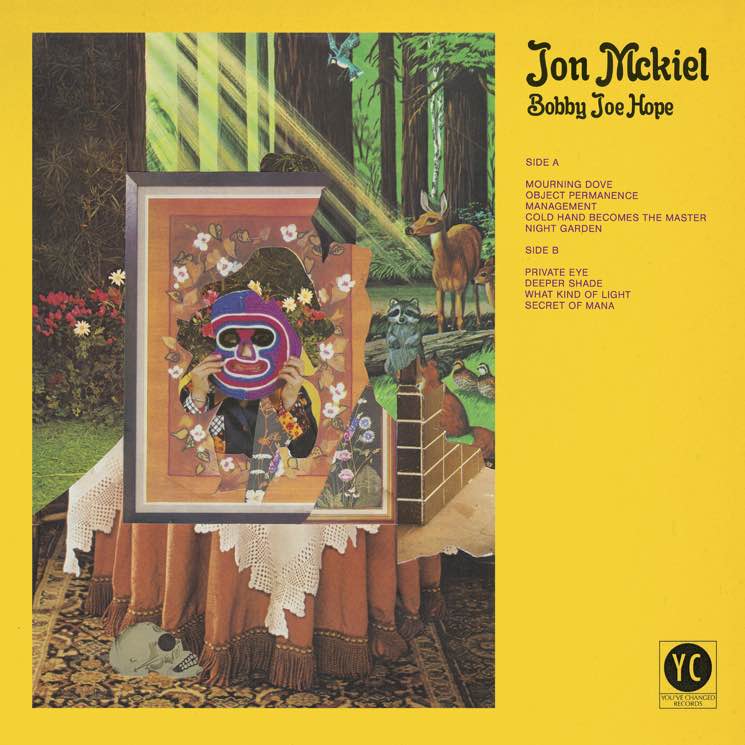In September 2015, Jon McKiel purchased a used TEAC A-2340 reel-to-reel tape recorder with a tape still in it. When he played it, he discovered a series of strange, uneasy samples. From this fateful online purchase, so began McKiel's collaboration with a ghost that eventually came to be known as Bobby Joe Hope, a brilliant postmodern masterpiece.
With his bemusing lyrics amidst hallucinatory instrumentation, Bobby Joe Hope transfixes for the entirety of its tight, half-hour runtime. Familiar sounds of folk, rock and pop are gently pulled asunder by incongruous sounds, with McKiel introducing innovative musical design by incorporating these obscure samples.
On Bobby Joe Hope, McKiel takes the listener on a roller coaster of sounds and ideas. It is immersive, poetically befuddling and ambitiously creative. McKiel's blend of psychedelia, rock and folk on tracks like "Mourning Dove" and "Cold Hand Becomes the Master" is infinitely engaging, while the more daring explorations of abstract sound, like "Night Garden" and "What Kind of Light," don't feel out of place.
This album is a surrealist adventure, born of an artist's response to a stranger's recordings. No one may really know what the samples are really of, and that may be what McKiel is trying to convey with his dense and bewildering music and songwriting. Bobby Joe Hope is a reminder that while postmodern music is tremendously subversive, it can also be progressive.
(You've Changed Records)With his bemusing lyrics amidst hallucinatory instrumentation, Bobby Joe Hope transfixes for the entirety of its tight, half-hour runtime. Familiar sounds of folk, rock and pop are gently pulled asunder by incongruous sounds, with McKiel introducing innovative musical design by incorporating these obscure samples.
On Bobby Joe Hope, McKiel takes the listener on a roller coaster of sounds and ideas. It is immersive, poetically befuddling and ambitiously creative. McKiel's blend of psychedelia, rock and folk on tracks like "Mourning Dove" and "Cold Hand Becomes the Master" is infinitely engaging, while the more daring explorations of abstract sound, like "Night Garden" and "What Kind of Light," don't feel out of place.
This album is a surrealist adventure, born of an artist's response to a stranger's recordings. No one may really know what the samples are really of, and that may be what McKiel is trying to convey with his dense and bewildering music and songwriting. Bobby Joe Hope is a reminder that while postmodern music is tremendously subversive, it can also be progressive.
